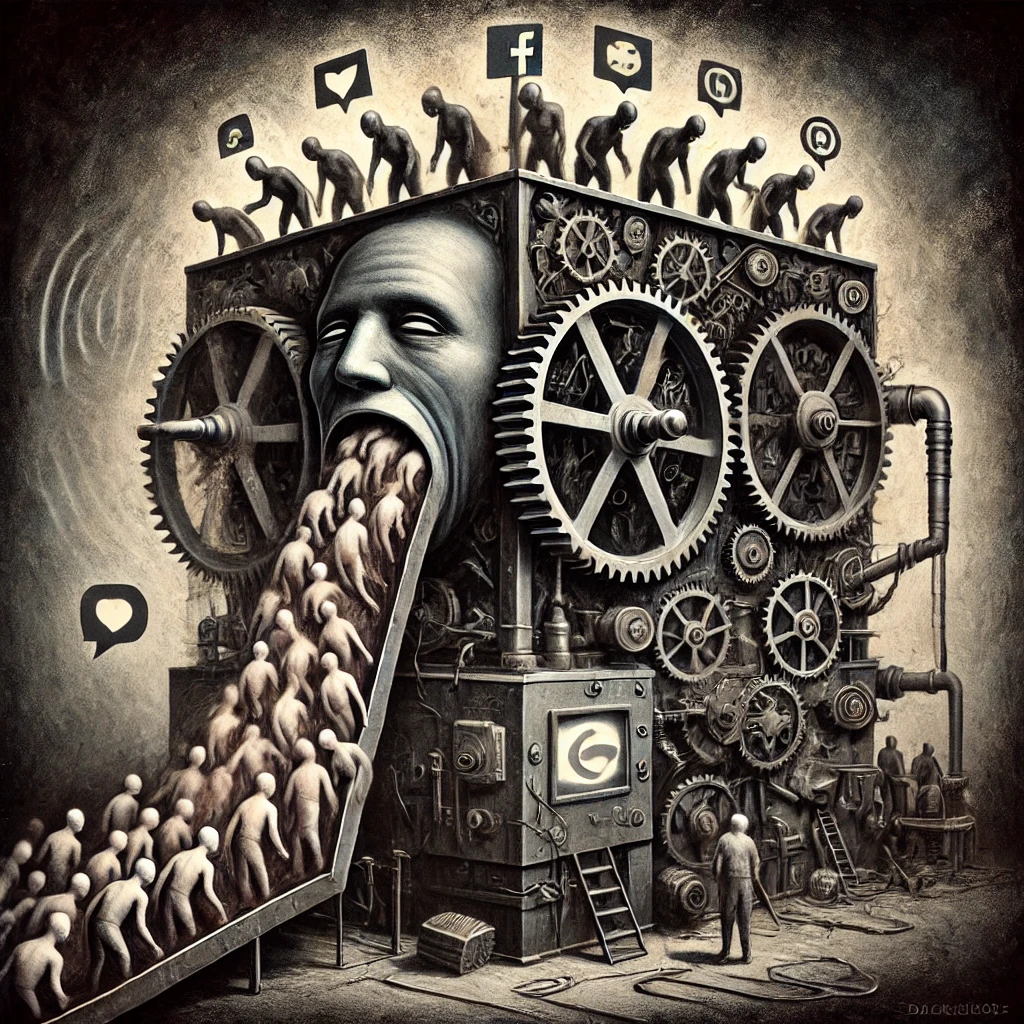
The United States of America, once a beacon of unity and democracy, finds itself at a crossroads. The nation, built on ideals of liberty and equality, is grappling with deep divisions that threaten its very fabric. From the political arena to the public square, Americans are increasingly divided along partisan lines, fueling a climate of mistrust and animosity. This article explores the factors contributing to this polarization and examines the potential consequences for the future of American democracy.
America Divided: A Nation at Odds
The United States has always been a nation of diverse viewpoints, but the current level of political polarization is unprecedented. The two major political parties, Democrats and Republicans, have become increasingly entrenched in their respective ideologies, leaving little room for compromise or common ground. This polarization is evident in the way Americans view each other, with a growing sense of distrust and animosity towards those who hold opposing political views.
The rise of partisan media outlets and social media platforms has further exacerbated this divide. Individuals are increasingly exposed to information that confirms their existing beliefs, creating echo chambers where dissenting voices are drowned out. This lack of exposure to diverse perspectives reinforces existing biases and makes it harder to engage in meaningful dialogue across the political spectrum.
The 2016 presidential election marked a turning point in American politics, with a highly polarized electorate and a deeply divided nation. The election exposed the deep-seated anxieties and resentments that had been simmering beneath the surface for years. The rise of Donald Trump, a candidate who capitalized on these anxieties and tapped into a sense of grievance among many Americans, further exacerbated the political divide, and accelerating the decline into the grinding of groupthink.
The COVID-19 pandemic has further intensified these divisions, with differing views on public health measures and government response fueling conflict and resentment. The pandemic has highlighted the vulnerabilities of the American system and exposed the deep-seated inequalities that have long plagued the nation.
The political divide in the United States is not just a matter of differing opinions; it is a fundamental challenge to the very principles upon which the nation was founded. The ability of Americans to coexist peacefully and work together towards common goals is increasingly threatened by the deep-seated divisions that have taken root in society.

The Grinding of Groupthink: Is Democracy Winding Down?
Partisanship, the strong allegiance to a particular political party, has always been a feature of American politics. However, in recent decades, partisanship has become increasingly intense and divisive. This rise in partisanship can be attributed to a number of factors, including:
- The decline of traditional media: The rise of the internet and social media has led to a fragmentation of the media landscape. Individuals are now more likely to consume news from sources that align with their existing beliefs, leading to a confirmation bias and a lack of exposure to diverse perspectives.
- The increasing influence of money in politics: The Supreme Court’s decision in Citizens United v. FEC (2010) allowed corporations and unions to spend unlimited amounts of money on political campaigns. This has led to a significant increase in the influence of wealthy donors and special interest groups, who often seek to advance their own agendas through partisan politics.
- The rise of identity politics: Identity politics, which emphasizes the importance of group identity in shaping political views, has contributed to the rise of partisanship. Individuals are increasingly likely to identify with a particular political party based on their race, gender, religion, or other group affiliations.
- The growing use of divisive rhetoric: Politicians and pundits have increasingly resorted to divisive rhetoric in order to mobilize their base and gain political advantage. This has created a climate of hostility and distrust, making it difficult for Americans to engage in constructive dialogue across the political spectrum.
- The rise of social media: Social media platforms have become a breeding ground for partisan echo chambers, where individuals are exposed only to information that confirms their existing beliefs. This lack of exposure to diverse perspectives further reinforces existing biases and makes it harder to bridge the divide.
The rise of partisanship has had a profound impact on American politics, making it more difficult to address pressing national issues and slow the effects of , to a decline in trust in government institutions.
The Power of the Internet: Fueling the Divide
The internet, while a powerful tool for communication and information sharing, has also played a significant role in fueling the political divide in the United States. Here’s how:
- Filter bubbles and echo chambers: Social media algorithms are designed to show users content that aligns with their existing interests and beliefs. This creates “filter bubbles” and “echo chambers” where individuals are only exposed to information that reinforces their existing views. This lack of exposure to diverse perspectives can lead to the formation of polarized opinions and a lack of understanding of opposing viewpoints.
- The spread of misinformation and disinformation: The internet has made it easier than ever to spread misinformation and disinformation. This can be done through fake news websites, social media posts, and other online platforms. The spread of false information can contribute to political polarization by creating a climate of distrust and suspicion.
- The rise of online activism: The internet has also made it easier for individuals to organize and participate in political activism. While this can be a positive force for change, it can also lead to the formation of online communities that are highly polarized and hostile towards opposing viewpoints.
- The erosion of trust in traditional media: The internet has challenged the authority of traditional media institutions. Many individuals now turn to online sources for news and information, which can be unreliable or biased. This erosion of trust in traditional media can further contribute to political polarization.
The internet’s impact on political discourse has been both positive and negative. While it has facilitated greater access to information and enabled individuals to connect with others who share their views, it has also contributed to the spread of misinformation, the formation of echo chambers, and the erosion of trust in traditional media. Grinding of groupthink is now inevitable.
The Media’s Role: Shaping the Narrative
The media plays a crucial role in shaping public opinion and influencing political discourse. In the context of a deeply divided nation, the media’s role is particularly important, as it can either exacerbate existing divisions or help to bridge the gap.
- The rise of partisan media: The media landscape has become increasingly fragmented, with the rise of partisan media outlets that cater to specific ideological audiences. These outlets often present a biased view of events and often engage in inflammatory rhetoric that can further polarize public opinion.
- The decline of neutral journalism: In the pursuit of ratings and clicks, some media outlets have abandoned the principles of neutral journalism. Instead, they have embraced a more sensationalized and partisan approach to news reporting, often prioritizing entertainment value over accuracy.
- The influence of social media: Social media platforms have become a major source of news and information for many Americans. However, these platforms are often susceptible to the spread of misinformation and disinformation. The algorithms used by these platforms can also contribute to the formation of echo chambers, where individuals are only exposed to information that confirms their existing beliefs.
- The pressure to engage in “clickbait” journalism: In the highly competitive media landscape, some outlets have resorted to using “clickbait” headlines and sensationalized stories to attract readers. This can lead to the publication of inaccurate or misleading information, further contributing to the spread of misinformation.
The media’s role in shaping public opinion is complex and multifaceted. While the media can play a vital role in informing the public and holding those in power accountable, it can also contribute to political polarization and the spread of misinformation.
Can We Bridge the Gap? Finding Common Ground
While the political divide in the United States appears daunting, there are ways to bridge the gap and foster a more cohesive society.
- Promote civil discourse: One of the most important steps is to encourage civil discourse and respectful dialogue across political lines. This involves listening to and understanding different perspectives, even if you disagree with them.
- Foster empathy and understanding: A key factor in bridging the divide is fostering empathy and understanding for those who hold different views. This can be achieved through initiatives that promote cross-cultural exchange and encourage individuals to step outside their comfort zones and interact with those from different backgrounds.
- Support organizations that promote civic engagement: Civic engagement organizations play a vital role in fostering dialogue and building bridges across the political divide. These organizations can provide opportunities for individuals to connect with others who hold different views and engage in constructive dialogue.
- Promote media literacy: Media literacy is essential for navigating the complex and often biased media landscape. Individuals need to be able to critically evaluate information from different sources and identify potential biases.
- Focus on shared values: Despite their differences, Americans share many common values, such as freedom, equality, and opportunity. Focusing on these shared values can help to build common ground and create a sense of unity.
- Promote civic education: Civic education is crucial for fostering an informed and engaged citizenry. This involves teaching young people about the principles of democracy, the importance of civic participation, and the need for tolerance and understanding.
Bridging the political divide will require a concerted effort from individuals, communities, and institutions. By promoting civil discourse, fostering empathy, and supporting organizations that promote civic engagement, we can create a more cohesive and united society.
The Future of Democracy: A Cause for Concern?
The grinding of groupthink in the United States raise serious concerns about the future of American democracy. Here’s why:
- Erosion of trust in institutions: The political divide has eroded trust in government institutions, making it more difficult for these institutions to function effectively.
- Increased political instability: The deep divisions and polarization in American politics have led to increased political instability, with the potential for violence and unrest.
- The threat to democratic norms: The rise of populism and the erosion of democratic norms have created an environment of distrust.
Each of us has a responsibility to promote civil discourse in our own lives. We can do this by engaging in respectful conversations with friends, family, and colleagues, even when we disagree. We can also challenge misinformation and disinformation when we encounter it, and we can hold our elected officials accountable for their rhetoric and actions. By embracing civil discourse, we can create a more positive and productive political climate and build a more united nation.
Hope for the Future: Building a United Nation
Despite the challenges we face, there is hope for the future. The American people have a long history of overcoming adversity and working together to achieve common goals. We have the capacity to bridge the divide, find common ground, and rebuild a more united nation.
This will require a collective effort, a willingness to engage in honest dialogue, and a commitment to finding solutions that benefit all Americans. It will also require a renewed focus on the values that have always defined our nation: liberty, equality, justice, and the pursuit of happiness. By embracing these values and working together to build a more just and equitable society, we can create a future where all Americans have the opportunity to thrive.
The divide in America is a complex and multifaceted issue, but it is not insurmountable. By acknowledging the problem, engaging in honest dialogue, and working together to find common ground, we can begin to heal the wounds that divide us and build a more united nation. The future of American democracy depends on it.



